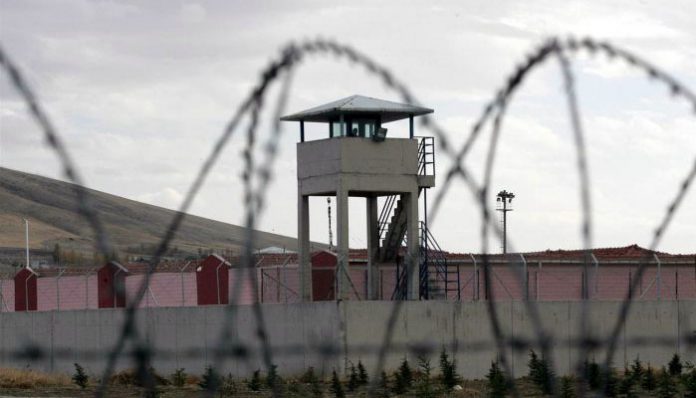COVID-19 restrictions that are still in effect in Turkish prisons, despite their elimination elsewhere, lead to serious rights violations, the chairpersons of the İstanbul Medical Chamber and İstanbul Bar Association said at a press conference on Tuesday, the Stockholm Center for Freedom reported.
According to Mehmet Durakoğlu, chairperson of the İstanbul Bar Association, the pandemic is being abused by the government as a tool to legitimize rights restrictions and is especially true for prisons. “Precautions can be taken to save lives, but they should be done within the limits of the law,” Durakoğlu said.
Dr. Pınar Saip, chairperson of the İstanbul Medical Chamber, said the authorities do not disclose information about the number of COVID-19 cases and vaccination rates in prisons. The ongoing restrictions in prisons, such as limitations on the period of time inmates can enjoy fresh air and contact visitation rights, have become a punishment in and of themselves, and they continue despite the lifting of restrictions elsewhere, she added.
Families of inmates have voiced protests as contact visitation in Turkish prisons has not been allowed since the beginning of the pandemic despite the elimination of restrictions even for such large gatherings as weddings and concerts.
Even if the inmates have been vaccinated, the families can only see their loved ones behind glass panels during non-contact visits.
In contact visitation, the inmate and visitor are permitted in the same area without a barrier between them, under close supervision.
The rapidly spreading COVID-19 has presented great concerns in Turkey’s prisons, which were already notorious for human rights abuses, overcrowding and unsanitary conditions before the pandemic. The purge of thousands of dissidents in the aftermath of a coup attempt in July 2016 has filled Turkey’s prisons, which today are overcrowded with tens of thousands of political prisoners.
The Turkish parliament passed an early parole law in April 2020 aimed at reducing the inmate population of the country’s overcrowded prisons due to the coronavirus pandemic. Yet, the legislation excluded political prisoners, including opposition politicians, journalists, lawyers, academics and human rights defenders convicted under the country’s controversial counterterrorism laws. The law prompted calls from the UN, the EU and rights groups for the non-discriminatory reduction of prison populations.
***Show us some LOVE by sharing it!***



